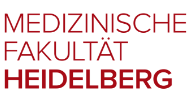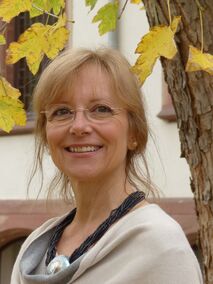Medical/Professional background
- since 1993
Research assistant at the Institute of Medical Psychology at the University Hospital Heidelberg
- 1990 – 1992
Research assistant in the research project “Psychosocial care for cancer patients in radiation therapy” at the University Clinic Hamburg-Eppendorf (1990-1991)
Scientific background
- 2014 – 2017
Trained Internal Family System (IFS by Richard Schwartz)
- 2016
Psychotherapist for adults (HP)
- 1999
Licensed child and adolescent psychotherapist
- 1985
Examined and certified Music therapist (Hochschule für Musik und Theater, Hamburg and DMtG, Deutsche Musiktherapeutische Gesellschaft)
- 1991 – 1993
Ericksonian Hypnotherapy
- 1984 – 1987
Additional training in Gestalt therapy
- 1980 – 1984
Additional training in Dance therapy
- 1976 – 1982
Trained vocal and breath therapist (Musikhochschule Hamburg, Universität Hamburg, breath therapy by Ilse Middendorf))
- 1976 – 1982
Studies of music education and music therapy at the Hamburg University of Music and Theater
- 1976 – 1984
Studies in language and special education; examined teacher for handicapped children
- 1976 – 1985
Studies of educational science at the University of Hamburg
research and work focus
Outpatient music psychotherapy group treatment
Lecturer for medical students
Before: Direction of several research projects in the field of Music Therapy, Voice Research and Altered States of Consciousness
More information: www.sabinerittner.de/forschung/Since 2019: Direction of therapies in the research project “Music Therapy for Depression – A Randomized Controlled Trial to Evaluate Psychobiological Effects of Music Therapy in Adult Women”
Cultural management and management of the event „Arbeitsgruppe Zukunftsmusik“
Seminars, workshops, lectures, coaching, supervision
selected publications
Rittner S (2019). Vokale Musiktherapie. In: Decker-Voigt et al (Hg.): Lexikon Musiktherapie. Göttingen: Hogrefe.
Rittner S (2017). Singen und Trance – Die Stimme als Medium zur Induktion veränderter Wachbewusstseinszustände im Kontext von Singgruppen. In: Wünnenberg, E. (Hg.): Singen als heilsame Kraft - Das Potenzial des Singens für das Gesundheitssystem. Grundlagen, Praxisfelder, Perspektiven. S. 42-56. Malsch: Singende Krankenhäuser e.V.
Rittner S (2017). Die Bedeutung des Körpers in der Musikpsychotherapie. In: H.-H. Decker-Voigt, R. Spintge, E. Weymann, H.U. Schmidt (Hg.): Musik und Gesundsein, Halbjahreszeitung für Musik in Therapie, Medizin und Beratung. 31/2017, S. 21-24. Reichert: Wiesbaden.
Hunger C and Rittner S (2015). Ritual Body Postures: Empirical Study of a Neurophysiological Unique Altered State of Consciousness. The Humanistic Psychologist, 43:4, p. 371-394. UK: Taler and Francis.
Rittner S und Hunger C (2013). Blute in die Erde – Der ritualisierte Einsatz ekstatischer Trancezustände in der Psychotherapie – Forschung und Praxis. In: Passie, Torsten (Hg.): Ekstasen: Kontexte – Formen – Wirkungen. Bibliotheca Academica. S. 311 – 325. Würzburg: Ergon Verlag.
Rittner S (2008). Der Wirkfaktor Stimme in der Psychotherapie / in der Musiktherapie. In: Musiktherapeutische Umschau, Themenheft „Die Stimme im therapeutischen Dialog“, 29, 3/2008, S. 201-220. Göttingen: Vandenhoeck & Rupprecht.
More than 120 publications in English, Japanese, German and French
See: www.sabinerittner.de/publikationen/




